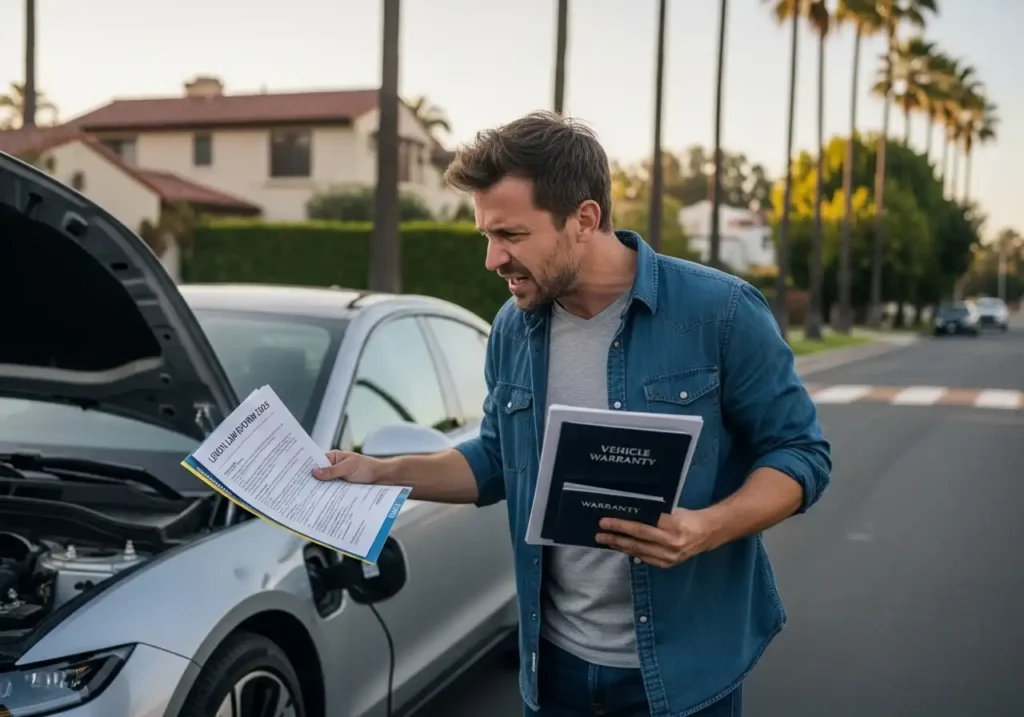Understanding the 2025 Lemon Law Reforms
The year 2025 is reshaping the Lemon Law landscape across the United States. States are tightening deadlines, adjusting notice requirements, and redefining what counts as a qualifying defect. These reforms are designed to streamline claims and reduce manufacturer disputes, but they also make it easier for consumers to lose protection if they miss key deadlines.
Whether you are a new car buyer or already struggling with a recurring vehicle defect, knowing these new rules can help you protect your rights and avoid mistakes that could jeopardize your claim.
Why Are States Updating Lemon Law in 2025?
Lawmakers across the country have recognized the growing complexity of modern vehicles—especially electric vehicles (EVs) and software-driven cars. With more recalls linked to software and connectivity issues, the traditional Lemon Law framework needed an update to keep pace with new technology and dispute volumes.
Consumer complaints have also surged over delayed repairs, vague warranty language, and remote software “fixes” that fail to solve the problem. In response, 2025 reforms focus on faster reporting, clearer notice rules, and digital documentation to reduce ambiguity for both consumers and manufacturers.
Key Changes You Need to Know in 2025
1. Shorter Filing Deadlines
 Many states are reducing the window of time you have to file a Lemon Law claim after your warranty expires. Traditionally, consumers had several years to bring a case. Under the new rules, you may have only one year after the warranty period ends to act.
Many states are reducing the window of time you have to file a Lemon Law claim after your warranty expires. Traditionally, consumers had several years to bring a case. Under the new rules, you may have only one year after the warranty period ends to act.
This means that if your warranty expired in June 2024, you might only have until June 2025 to initiate a Lemon Law claim. Missing this deadline could permanently bar you from pursuing compensation or a vehicle replacement.
It’s critical to review your purchase documents and warranty terms so you know when your eligibility ends.
2. Mandatory Pre-Suit Notice
Another major change taking effect in 2025 is the requirement to send a formal written notice to the manufacturer before filing a lawsuit. This rule, already in force in states like California under Assembly Bill 1755, requires you to give the manufacturer at least 30 days’ notice before filing your claim.
This notice gives automakers an opportunity to offer a resolution—such as an additional repair attempt, a buyback, or a replacement—before the matter goes to court. However, failure to send the notice or missing the 30-day window can lead to dismissal of your case.
3. New Mediation and Arbitration Procedures
Some states are introducing or expanding mandatory mediation or arbitration programs. These aim to reduce the number of court cases and encourage early settlements. While mediation can be faster and less expensive, consumers should approach it carefully and consult an attorney before agreeing to a settlement.
Under new provisions, certain manufacturers may also be allowed to request early discovery or document exchange during mediation. This helps speed up the process but also increases the need for detailed, accurate documentation from the consumer.
4. Redefining “Substantial Impairment” and “Repair Attempts”
Reform bills are also clarifying what counts as a “substantial impairment” under Lemon Law. This term refers to how severely the defect affects the use, value, or safety of your vehicle. Lawmakers are specifying thresholds for what qualifies—such as repeated failure of critical systems or prolonged out-of-service periods.
Similarly, new language defines how many repair attempts are considered “reasonable.” In most states, two to four unsuccessful repair attempts for the same defect are sufficient to trigger Lemon Law protections, but the exact number may vary under the new rules.
Spotlight: California AB 1755 (2025)
California’s Assembly Bill 1755 is one of the most significant updates to Lemon Law procedures in years. It introduces:
- Pre-suit notice requirement—Consumers must notify the manufacturer 30 days before filing a claim.
- Shortened filing period—Claims must be filed within one year after the warranty expires, or within six years of vehicle delivery, whichever comes first.
- Mediation options—Manufacturers that opt into the state’s mediation system may face fewer penalties if they respond promptly.
- Updated documentation standards—Owners must include repair orders, dealer communications, and defect reports with their claim notice.
These changes aim to reduce unnecessary litigation but could make it harder for unrepresented consumers to navigate the process.
How These Reforms Affect You
 For consumers, the biggest impact is timing. Missing a notice or filing deadline—even by a few days—can destroy an otherwise strong claim. Vehicle owners must now be proactive about reporting issues and keeping repair documentation up to date.
For consumers, the biggest impact is timing. Missing a notice or filing deadline—even by a few days—can destroy an otherwise strong claim. Vehicle owners must now be proactive about reporting issues and keeping repair documentation up to date.
Here’s how to stay ahead:
- Document every repair attempt. Save all invoices, dealer notes, and correspondence.
- Know your state’s deadlines. Check your warranty expiration date and local Lemon Law statute of limitations.
- Send notice early. If you plan to file, give formal written notice to the manufacturer right away.
- Track your vehicle’s downtime. If your car spends more than 30 days in repair within the first 18 months or 18,000 miles, you may qualify.
- Consult an attorney. Legal guidance can ensure you meet every procedural step correctly.
Other States Considering Lemon Law Updates
Several states—including New York, Florida, and Texas—are reviewing similar Lemon Law reform bills. While details vary, most proposals share common goals: faster claims, early resolution, and stricter filing procedures.
Even if your state hasn’t enacted changes yet, staying informed helps you prepare for updates likely to roll out in the next one to two years.
Tips to Protect Your Lemon Law Rights in 2025
- Keep organized records. Every repair order counts as evidence.
- Communicate in writing. Written communication helps prove notice compliance.
- Avoid delay. File as soon as the defect repeats or remains unresolved.
- Check for recalls. If your issue is linked to a recall, document the fix attempts and related repair dates.
Consumers who act quickly and follow notice requirements can still secure refunds, replacements, or cash compensation for qualifying lemons under the new legal framework.
Final Thoughts
The 2025 Lemon Law reforms mark an important shift toward stricter procedural compliance. While the goal is efficiency, these changes may place a heavier burden on consumers. To protect yourself, stay informed about your state’s rules, meet all deadlines, and keep your documentation airtight.
Acting early and seeking professional help when necessary can make the difference between losing your claim and winning the compensation you deserve.
